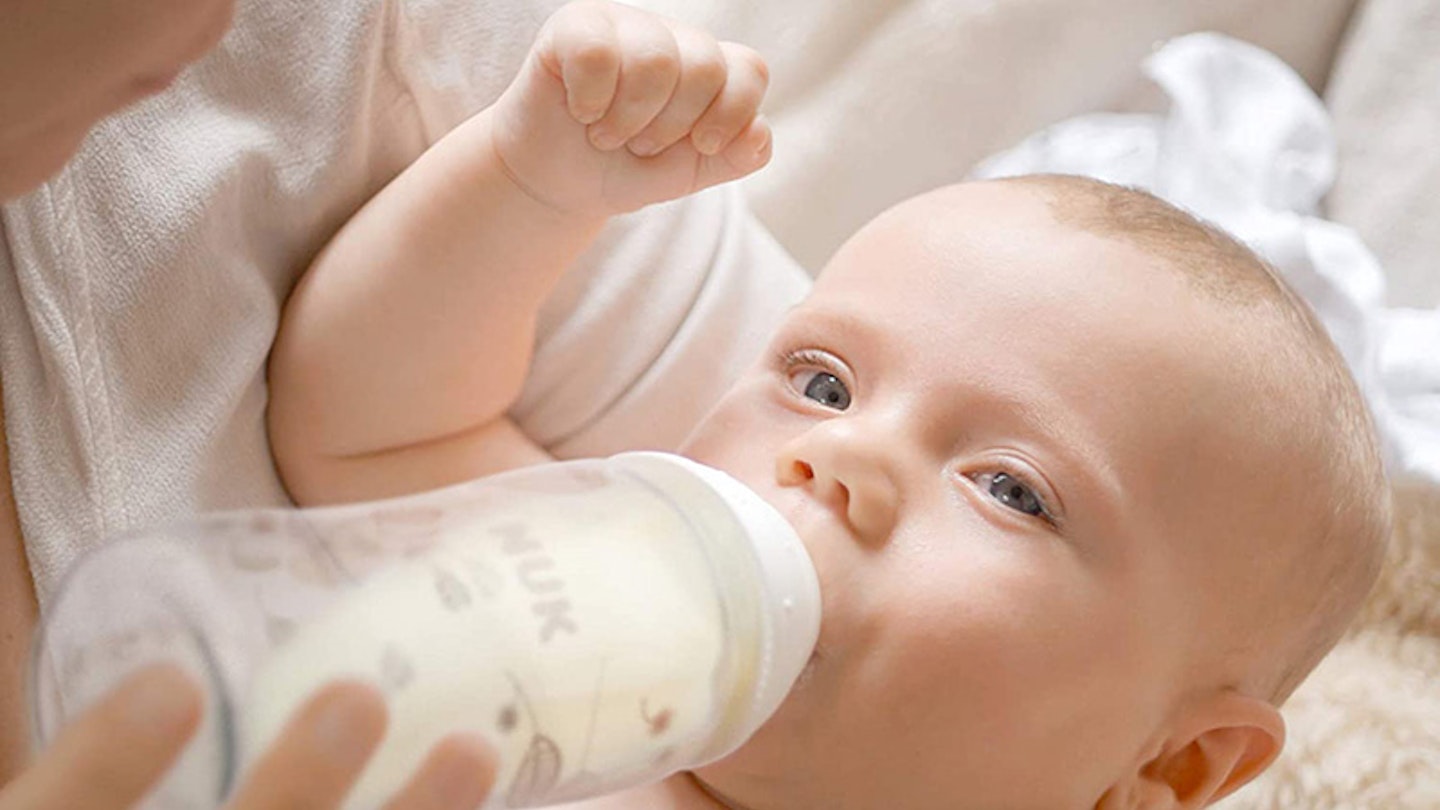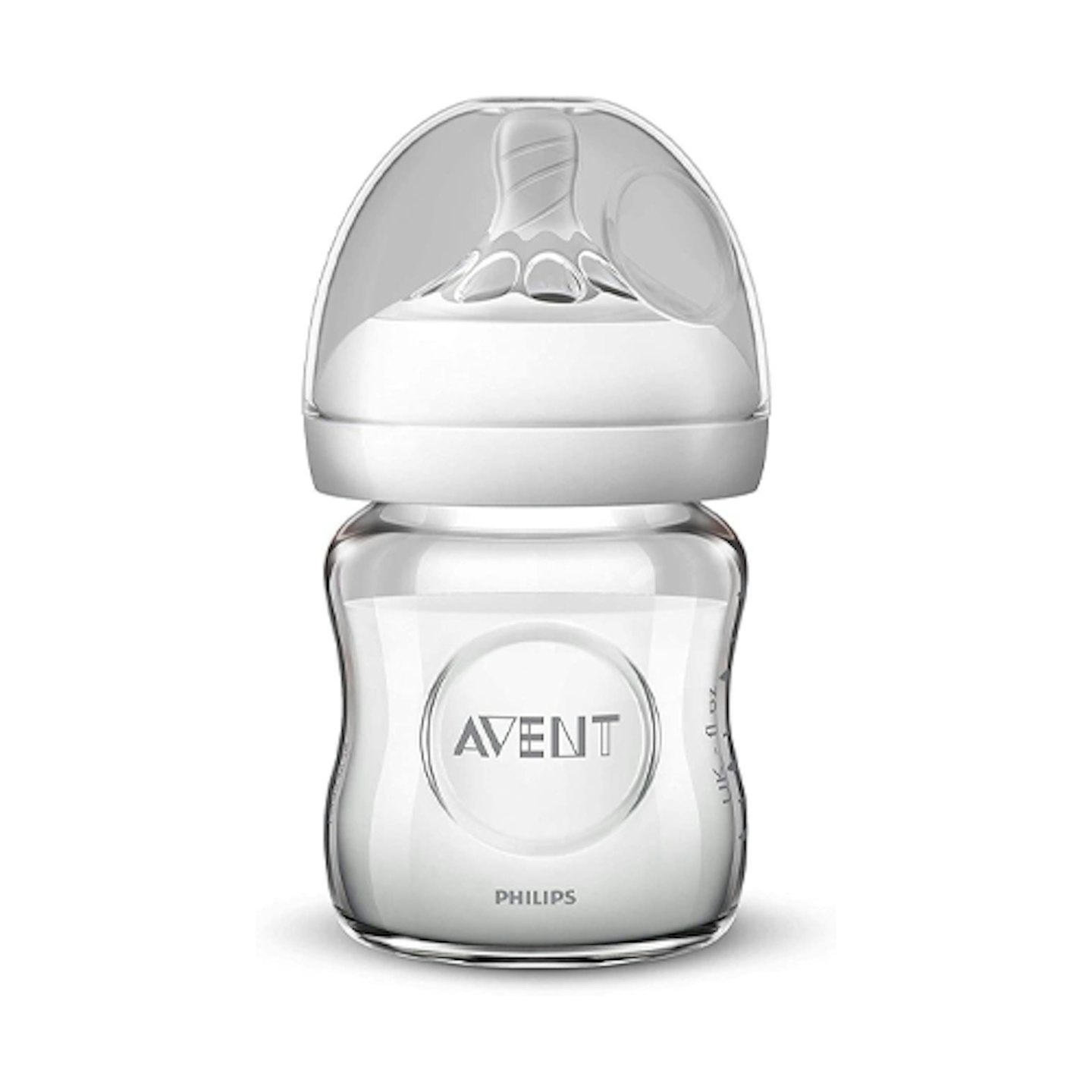“Glass baby bottles? Are they really a thing?”
We heard you ask this question, and yes, they are – and they’re becoming more popular by the day. There are lots of reasons for parents choosing glass over plastic for their baby’s bottles, and we wanted to find out more. Are they safe? Are they better than plastic? Which ones should I buy? Read on to find out everything you need to know about glass baby bottles.
Are glass baby bottles safe?
One word: yes.
When you think of a glass bottle, you probably think of a milk bottle, which shatters dangerously if you drop it. Considering how many times you and your baby will drop their bottle – we know how clumsy you get on 3 hours sleep after all – you want to make sure that a glass baby bottle can withstand babyhood. Plus, the initial thought of giving your baby something made of glass can make you shiver.
However. The glass used to make baby bottles is extremely hard-wearing and safe. It’s tempered and therefore toughened; they’re also thermal-shock resistant, meaning they can go from freezing cold to piping hot without breaking. This is great if you’re taking stored baby milk out of the fridge in the bottle to be warmed up. Think of your Pyrex dishes that you use for casseroles – it’s the same sort of treated glass.
Glass bottles are also really easy to clean and don’t store dirt or bacteria in the way plastic can.
If you’re worried about glass bottles slipping out of your grasp easily, you can buy special sleeves to give you extra grip.
Are glass baby bottles better than plastic?
You will have heard of BPA (bisphenol A), which we’ve been avoiding in plastic goods for a long time. This chemical can leach into drinks and food, so it’s always vital to make sure any bottles, plastic lunchboxes, or bags are BPA-free.
However, given the discovery of this chemical, who’s to say there aren’t more nasties hiding in plastic that we don’t know about yet?
Using glass as a material for your baby’s bottle removes all worry about chemicals leaching into their milk, as it’s naturally free of toxicity.
Plus, if you’ve noticed how plastic can begin to smell over time, you’ll be glad to know this won’t happen with glass. Plastic traps dirt and bacteria, whereas glass won’t.
Are glass baby bottles eco-friendly?
Yes!
Your glass baby bottle will last much longer for you and your baby; plastic bottles often cloud and scuff over time, whereas your glass bottle will stay shiny and clean forever. So no more throw-away plastic; plus, glass can be recycled properly, and won’t live forever in our oceans after you’re done with it.
Should I buy a glass baby bottle?
That’s really up to you and your preferences. There are pros and cons to both glass and plastic baby bottles, and every mum you talk to will have an opinion on them. Choose a bottle that suits you and you’re baby, and you’re winning.
If you’ve decided you’d like to try a glass baby bottle, here are the best ones on the market today:
Curved so they're easy for you (or your baby) to hold, the Philips Avent comes with a naturally shaped teat that mimics a nipple to give your baby the best chance of latching on easily. Available in 120ml, 125ml, 240ml, 260ml and 330ml.
Philips Avent is a well-trusted brand and designs bottles with your baby in mind. The anti-colic features are built-in, making them easy to clean and take apart.
Mum review: "This is a very cute glass bottle and good quality. It has become my baby's favourite bottle! Highly recommend!"
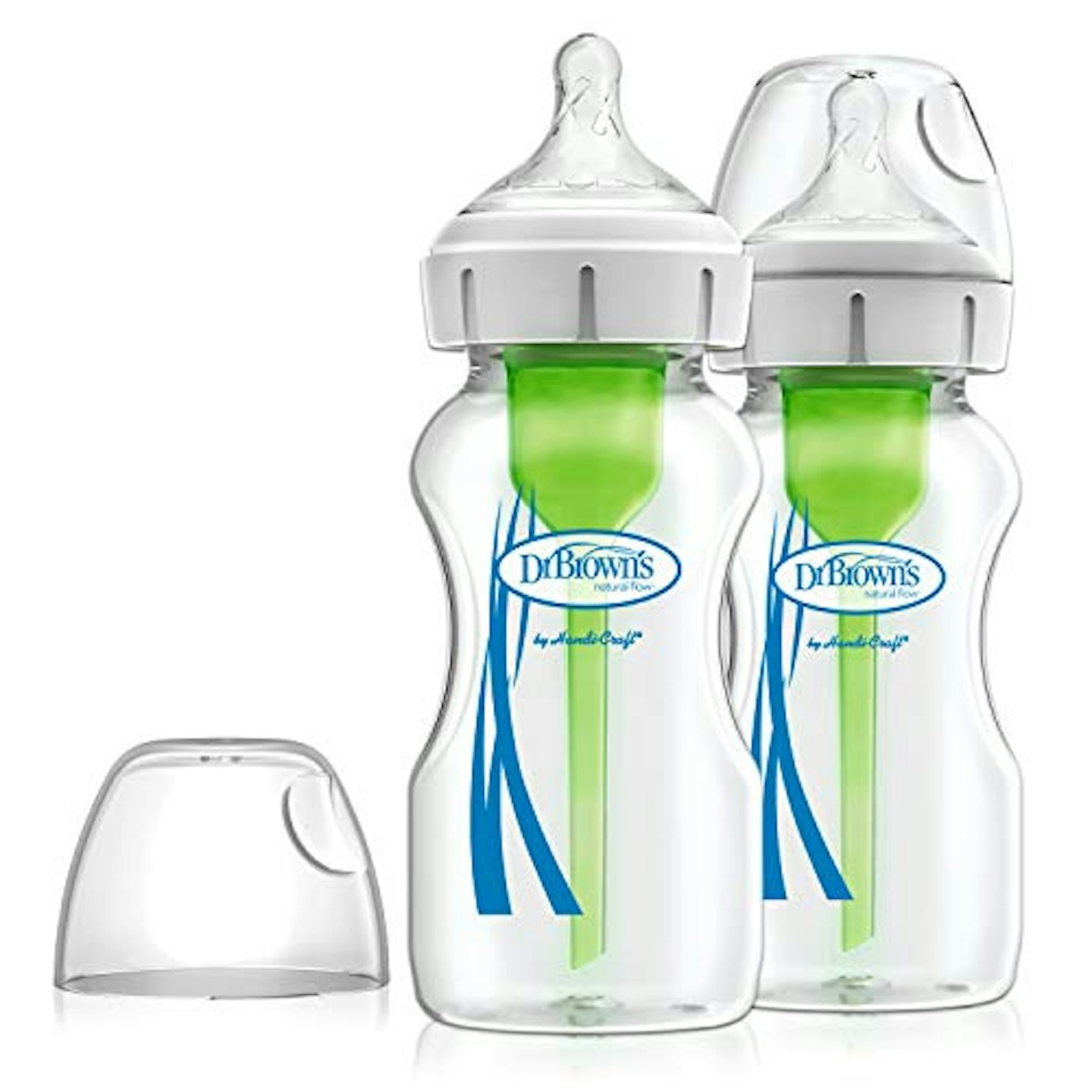
Dr Brown's is a well-known brand to parents around the world, and this glass version of its plastic anti-colic bottle is popular. The teat is designed to act like a breast to aid latching on, and the anti-colic features aim to help your windy baby thanks to the vented system that mimics the flow from a breast. You can buy silicone sleeves for the bottles to give you a better grip on the glass.
Mum review: "I've been using Dr Brown's glass bottles for the baby since birth, originally the 150ml bottles and now these larger ones (currently have 14 bottles from this range altogether and been using them for nearly 6 months at this stage). The bottles are great quality, made of a thick and durable glass."
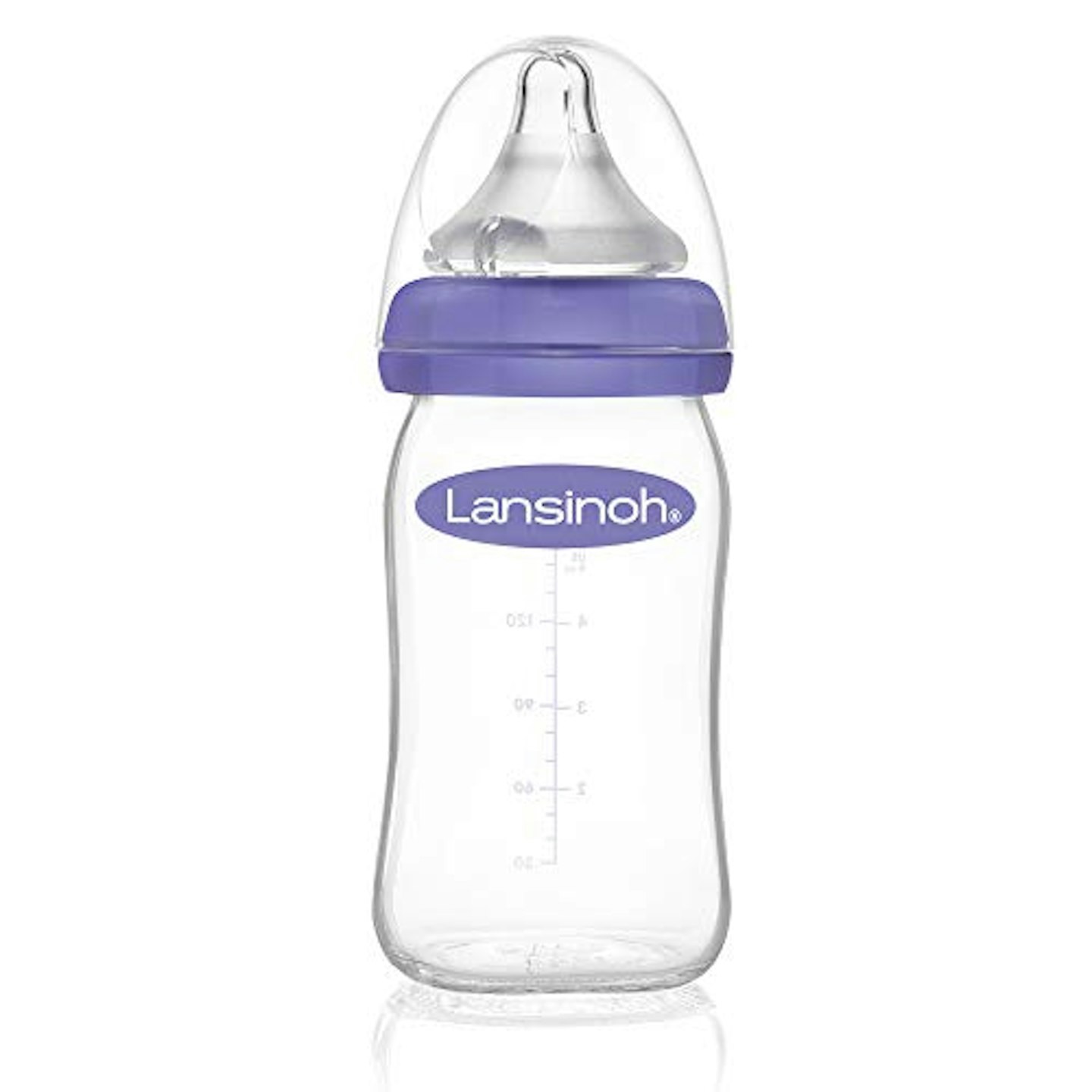
Made from recycled glass to be extra eco-friendly, this Lansinoh baby bottle features the brand's silicone NaturalWave Teat, designed to encourage a baby's 'wave-like' tongue movement, promoting instinctive sucking action. The Air Ventilation System also reduces your baby's intake of air, aiming to reduce colic.
Mum review: " This is just the best bottle I have ever used, it keeps the milk at the right temperature for longer, it's easy to sterilize and clean, I love the teet, it's great to hold, it never leaks, I'd recommend it to anyone."
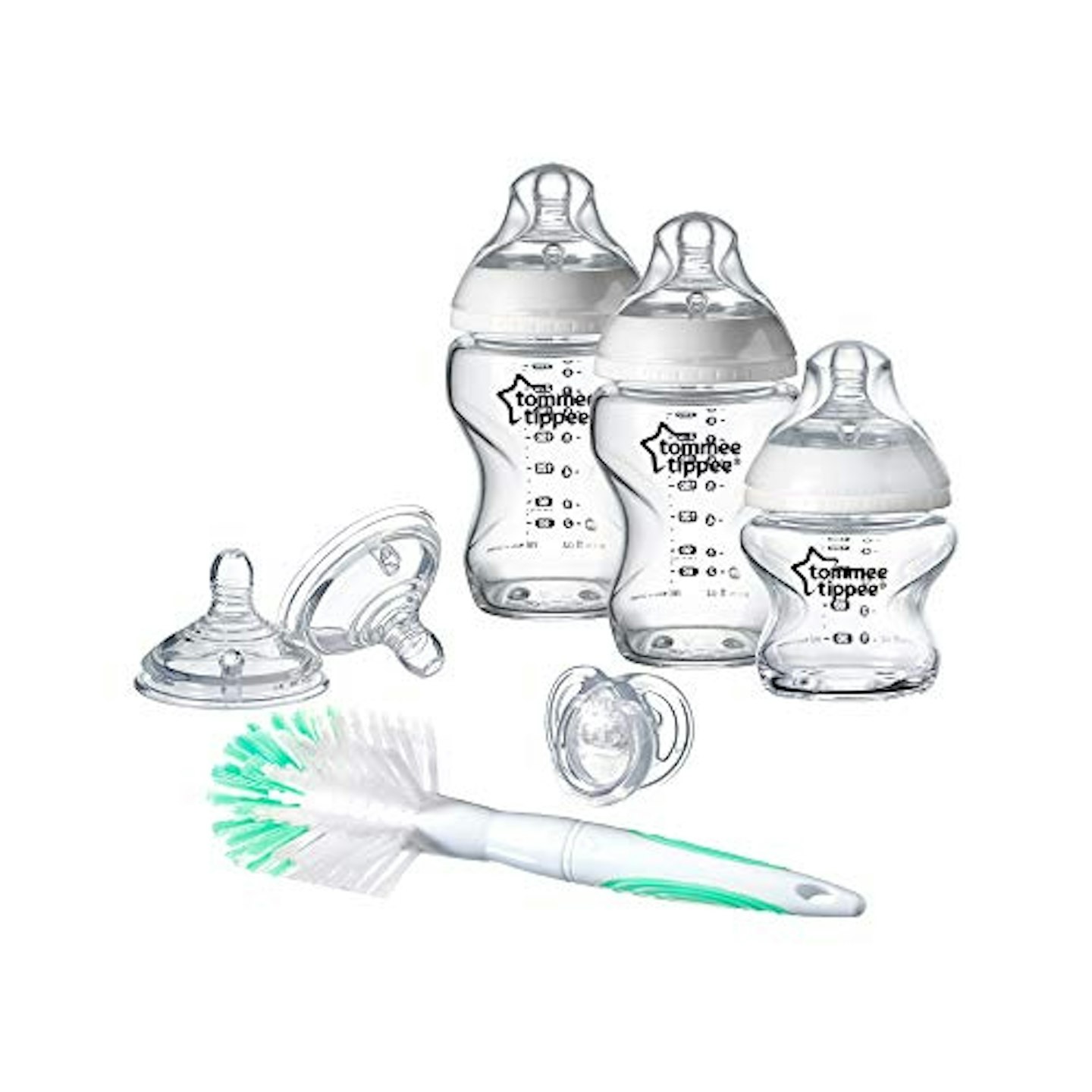
A great set for beginning your bottle-feeding journey, you get two 260ml glass bottles, a 150ml glass bottle, one teat, a bottle and teat brush, and a dummy. The teats are distinctively breast-shaped to encourage your baby to latch on to the bottle, and the bottles are shaped for ease of holding.
Mum review: "I’m extremely glad to find this glass set. The glass is heavy and good quality, it keeps the milk warm longer than normal plastic bottles. My baby normally finishes the milk in two parts slowly if fed in plastic bottle but now she can finish the milk in one go in glass bottle! No idea how, but I’m happy she is happy."
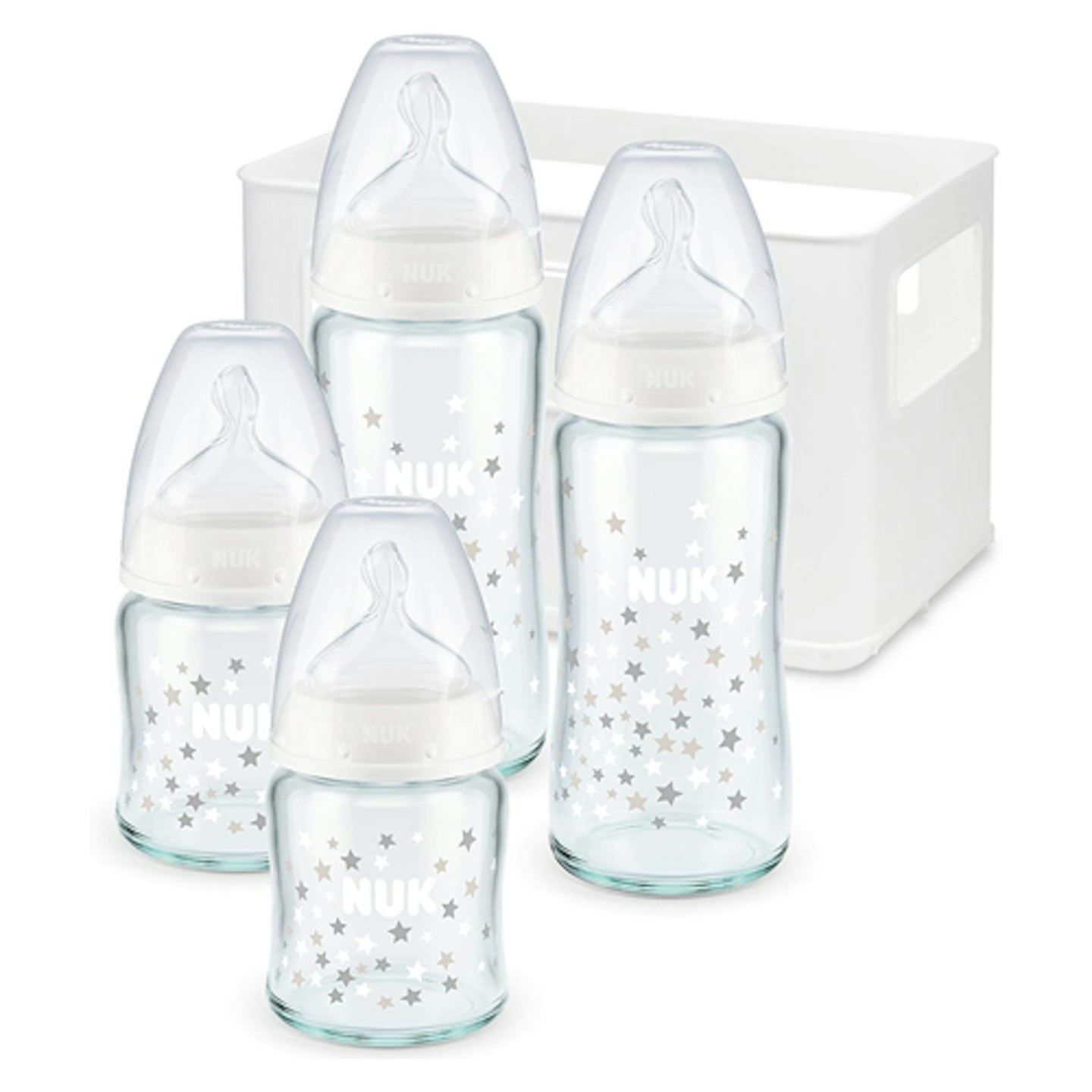
This start kit includes two 120ml glass baby bottles with silicone teats, and two 240ml bottles with teats, aimed at babies aged 0-6 months - plus a handy box to keep them all in. They also feature NUK's anti-colic system designed to reduce the amount of air your baby takes in while feeding.
Mum review: "Love the feel of it: it’s weighted and doesn’t feel like it will easily smash. Feels like it will last much longer than plastic milk bottles which is great if you want to save money in the long run."
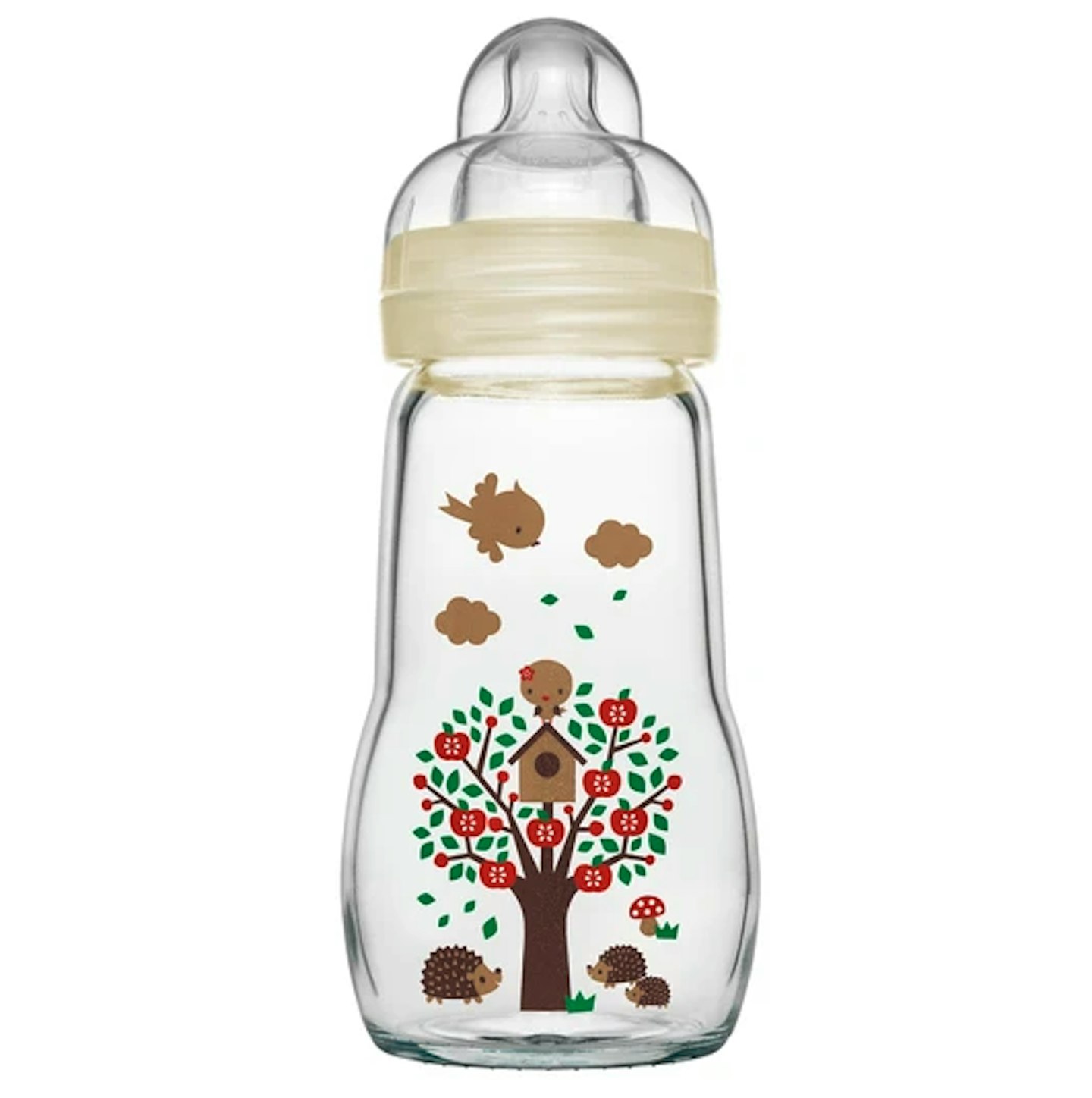
Strong, durable and naturally BPA-free, the MAM Feel Good 260ml Bottle is made of temperature-resistant glass. As a result, the bottle can be heated in the microwave or bottle warmer, cooled down quickly, cleaned in the dishwasher, and sterilised at high temperatures. It includes a 'skin soft' teat which is silky soft and provides a familiar feel for babies.
Mum review: "Only bottles I brought for my little girl she’s 7 months old had no colic and always look clean and easy to clean I would definitely buy these again for next time."
